SUMMARY
- Batching tasks allows you to group similar tasks together and focus on them for a specific period of time, improving concentration and allowing you to monotask rather than multitask.
- “Eating the frog” is a productivity hack that prioritizes the most difficult task first, leading to feelings of accomplishment that can carry over into the rest of the day/week.
- Automating your attention by turning off notifications, putting your phone on silent, and using online scheduling helps avoid distractions.
- Power napping for 10-20 minutes before 2pm (or 5pm for night owls) can improve cognitive function and boost creativity.
- Incorporating these habits can help increase productivity and make you more efficient – practice proactively to see real results
~ 593 words / 3 minute read
Although productivity is an essential component to work and life, it’s not a subject most people learn in school. At first glance, the ability to stay focused, get organized, and finish tasks on time seems to be a talent bestowed at birth on the lucky. Thankful productivity experts have another view. Your productivity does not manifest from your genes but from your habits. The following productivity hacks will help you take control of your time and transform the way you work.
Batch Your Time
Time batching is a technique where you set aside specific timeframes for certain tasks. Instead of jumping from one task to another, time batching allows you to group similar tasks together and focus only on them for a specific period. For example, instead of reading emails throughout the day, you schedule a specific time to read and respond. Likewise, you might set aside specific times each day for returning calls or scheduling appointments. Time batching improves concentration and allows you to monotask rather than multitask, which research has shown to be ineffective. We all wish there was more time in a day. By batching your tasks, you’ll be able to work more efficiently, save time, and minimize distractions.
Eat the Frog
American humorist Mark Twain once wrote, “If it’s your job to eat a frog, it’s best to do it first thing in the morning. And If it’s your job to eat two frogs, it’s best to eat the biggest one first.” Productivity experts have latched onto Twain’s metaphor to address the way many people avoid hard tasks. Unfortunately, that avoidance has a cost. Stress, anxiety, and low-energy happen when we put off important work. Much like ripping off a band-aid, ‘eating the frog’ means prioritizing difficult work. Once you’ve conquered a challenging task, your feeling of accomplishment will carry over into the rest of your day, even your week.
Avoiding Distractions
Distractions can significantly affect productivity. Edward G. Brown, an efficiency and workflow consultant, argues that our biggest time bandits come from momentum loss, starting over, and do-overs because of errors. Nir Ayal, author of Indistracible: How to Control Your Attention and Choose Your Life, recommends using technology to automate your attention. Simple habits like turning off notifications during work hours, putting your phone on silent, and having clients book appointments through an online scheduler keeps your attention on your most important work and saves you time throughout your day.
Power Naps
Can sleeping in the daytime really make you more productive? Just ask some of the world’s most successful basketball players like Lebron James or Derrick Rose, who have relied on naps to boost performance. Research shows that it’s not just athletes who benefit from napping. Power naps, defined as a 10-20 minute daytime sleep burst, can help recharge your energy, improve cognitive function, boost your creativity, and improve your work performance. When’s the best time to power nap? Sleep experts recommend before 2pm for most people or as late as 5pm for night owls. When you find yourself reaching for afternoon caffeine, you’ll know it’s time for a quick nap.
The Takeaway
Incorporating productivity habits like time batching, prioritizing hard tasks, avoiding distractions, and power naps are practical ways to increase productivity and become more efficient. By adopting these habits, you’ll be able to work smarter, not harder. Start by trying one or two habits for a few weeks and track how your productivity improves. Remember, productivity is like a muscle you develop, so practice everyday to get stronger.
